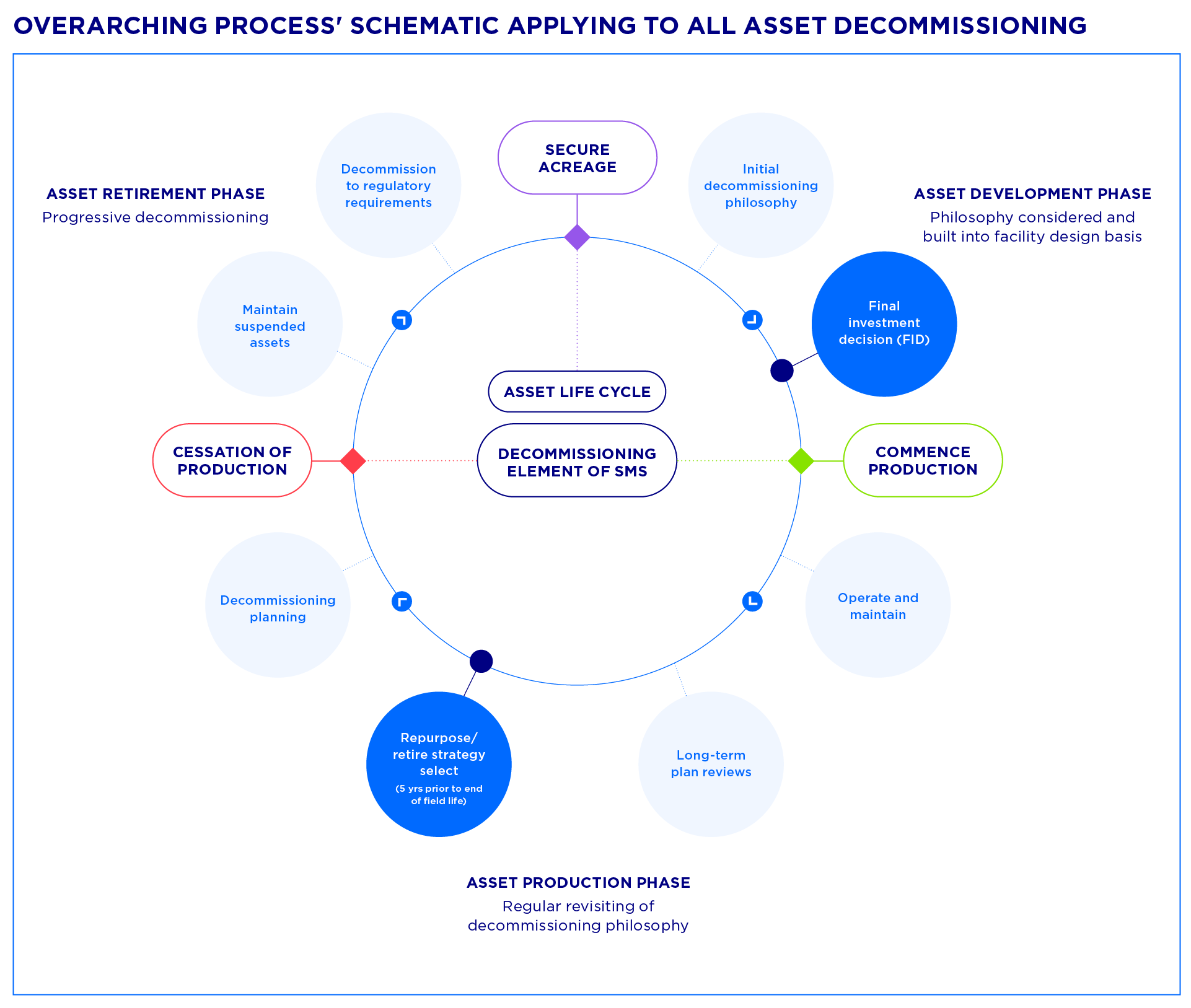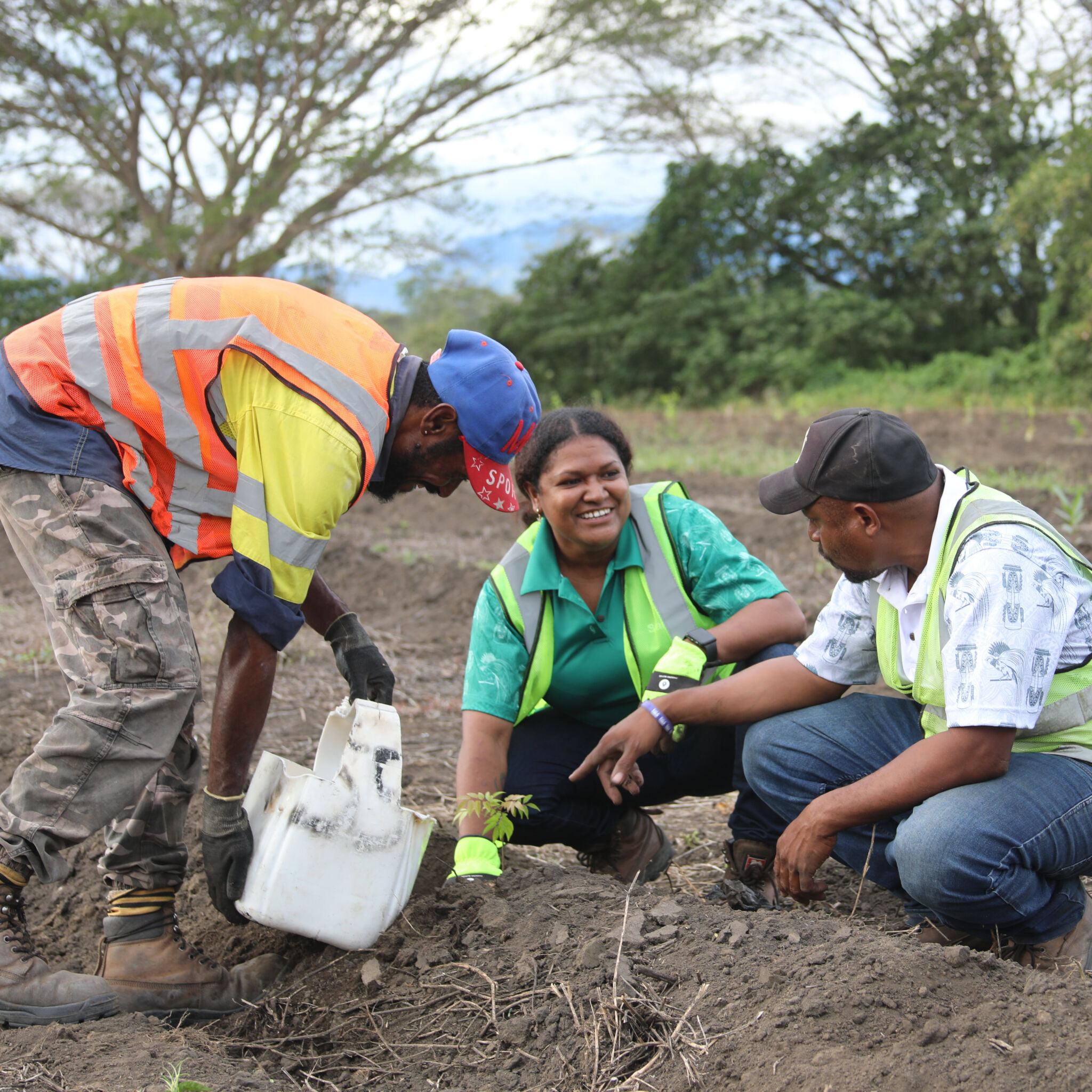Our objectives
- Engage with local supply chains and is an active participant in decommissioning industry bodies.
- To mitigate the environmental impacts of our operations and activities, and to work with our communities and partners for positive environmental outcomes.
Our aspirations and targets by 2030
- Have Net Zero abstraction of water from Great Artesian Basin aquifers.
- Complete 100 per cent background methane gas and baseline assessments across all onshore operations.
- Zero avoidable waste to landfill by 2040.
2023 performance highlights
- 69 per cent of waste generated is diverted from disposal
- 88 per cent of coal seam gas water beneficially reused
- Mutineer, Exeter, Finucane, Fletcher fields floating assets safely and successfully removed including 705 tonnes of equipment
- Through the Great Artesian Basin Industry Partnership Program, 3,005ML/year of groundwater is now being saved
Focus areas
Decommissioning is the final part of the asset lifecycle.
Santos looks to commit approximately $200 million annually to decommissioning activities.
Santos primarily uses a progressive decommissioning approach with assets removed in stages, in a disciplined manner over time, as opposed to large scale short duration campaigns. We believe this improves safety, local supply chain capability development and participation and organisational learning, resulting in better long term outcomes for all stakeholders.

Santos manages water related risks and has identified opportunities to maximise re-use of water.
Santos manages co-produced water responsibly and only releases water to the environment in accordance with strict operating conditions that minimises the potential risk of impact to an acceptable level.
Reuse of water
In our onshore Australian operations, our aim is to maximise the re-use of co-produced water generated.
- Of the 15,296 ML of co-produced water generated in 2023 across Santos’ Australian onshore operations 8,792 ML, or 57 per cent, was beneficially reused
- Of the 15,296 ML of co-produced water generated onshore in 2023 (14,572 ML in 2022), ~63 per cent was generated in coal seam gas operations in Queensland
- Overall in 2023, Santos reused ~88 per cent of coproduced water generated in onshore coal seam gas operations, compared to ~82 per cent in 2022.
Water partnership and initiative
At the end of 2023, Santos has funded Great Artesian Basin Industry Partnership Program (GABIPP) projects that have cumulatively achieved more than 3,000 ML/year water savings for aquifers in the Great Artesian Basin.
Access our Water Portal to view results from our surface water and groundwater monitoring programs, and access information about our responsible water management strategies.

As an energy company, Santos works across a broad range of terrestrial and marine environments from tropical to arid biomes.
Santos is actively protecting ecosystems in the Morobe province through the Markham Valley (Afforestation/Reforestation) project in Papua New Guinea.
Santos has worked with local landholders since 2016 planting selected high density species native to Papua New Guinea in this degraded ecosystem. At present the project has access to over 5,000 hectares of land and has the potential to increase to 12,000 hectares by 2031.
In addition, Santos invests in indirect offsets such as funding koala research in the Pilliga State Forest.
Waste management continues to be a focus throughout all operations via the implementation of long-term strategies that focus on the life cycle management of waste. As recycling and waste recovery programs advance, Santos’ actions have focused on diverting waste from landfill.
- In 2023 of the total waste generated in Australia, 90 per cent was Diverted from Disposal (70 per cent in 2022).
- Additionally, for waste considered hazardous, approximately 93 per cent was Diverted from Disposal globally.
